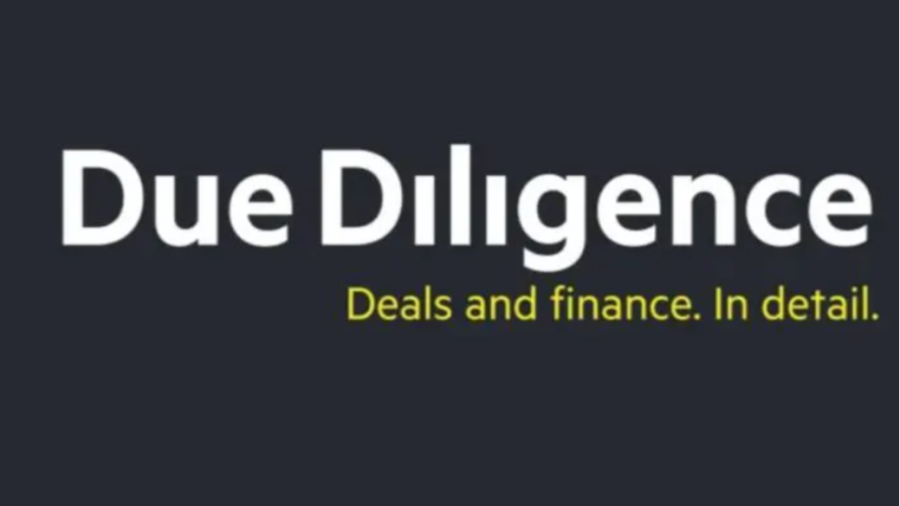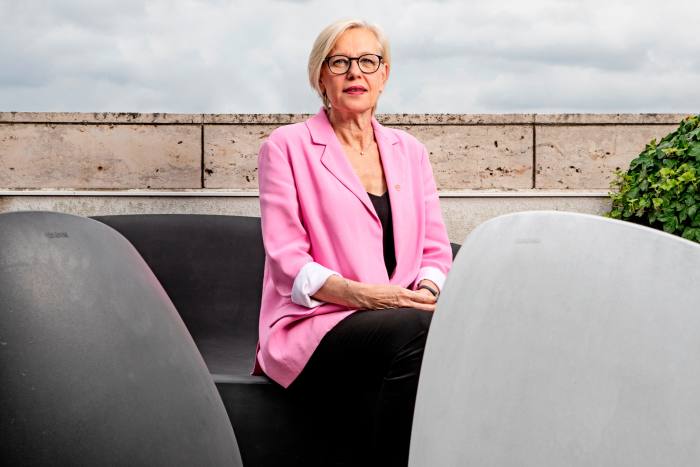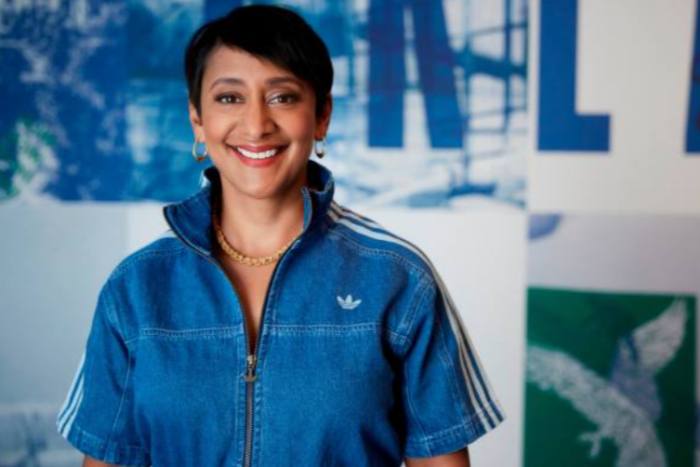
Receive free Mergers & Acquisitions updates
We’ll send you a myFT Daily Digest email rounding up the latest Mergers & Acquisitions news every morning.
One thing to start: Newcastle United co-owner Amanda Staveley has dismissed a Greek shipping magnate’s claim that she owes him tens of millions of pounds, ahead of a court case to try to stop him pushing her into bankruptcy.

Welcome to Due Diligence, your briefing on dealmaking, private equity and corporate finance. This article is an on-site version of the newsletter. Sign up here to get the newsletter sent to your inbox every Tuesday to Friday. Get in touch with us anytime: [email protected]
In today’s newsletter:
Eurostar lays down the tracks for a comeback
Eurostar has been a go-to for dealmakers travelling between London and Paris since it launched in the late nineties. But the journey has become less glamorous in recent years.
Passengers are braving wraparound queues and widespread delays resulting from post-Brexit passports checks. Meanwhile, plunging ridership during the pandemic has added to its existing financial woes.
But the high-speed train operator has undergone a transformation in recent months, including a long-anticipated merger with European rail group Thalys last year and the arrival of new chief executive Gwendoline Cazenave.
Eurostar is aiming to build “what I call the backbone of sustainable travel in Europe”, she told the FT’s Robert Wright, detailing a new strategy to focus on its core routes.

The company hopes to use its tie-up with Thalys, which operates high-speed services from Paris to Brussels, Amsterdam and Cologne, to create more connections between its cross-Channel and mainland European services and lure back customers tempted by low-cost airlines.
But the same financial, operational and regulatory issues still loom over Eurostar’s simplified recovery plan.
The growing cost of servicing its debt is weighing on the company. Eurostar narrowly dodged bankruptcy in 2021 after being bailed out by shareholders including French state railway SNCF, Canadian institutional fund manager Caisse de dépôt et placement du Québec and Hermes Infrastructure.
The group held €964mn in debt by the end of 2022. Rising electricity costs and a sharp jump in infrastructure charges associated with utilising the tracks that run from St Pancras to the Channel Tunnel have only added to the tab.
Then there’s the looming threat of new competition as Channel Tunnel owner Getlink has signalled it is open to seeing more operators take advantage of the undersea route.
Eurostar is facing more immediate headaches, though, in its efforts to get back on track — Dutch environment minister Vivianne Heijnen warned MPs last month that Eurostar services between London and Amsterdam could be suspended as the city renovates its central station.
Saudi Arabia is far from hanging up its jersey
Yasir al-Rumayyan has had a busy few seasons.
After cementing a £300mn takeover of Newcastle United in 2021, the governor of Saudi Arabia’s $650bn Public Investment Fund took a multibillion-dollar swing at golf with the breakaway LIV Golf circuit, set to result in a shocking merger with the US PGA Tour.
But the kingdom isn’t done flexing its financial athleticism. Saudi Arabia plans to launch a multibillion-dollar investment company within the PIF, two people familiar with the matter told the FT’s Samer Al-Atrush in Dubai and Samuel Agini, to scout more deals in the global sports arena.
Neither LIV nor Newcastle will fall under the new company, according to one source, who said it would be focusing on new opportunities.
It’s still unclear which sports the new vehicle plans to target. The FT reported last month that the PIF had also held talks with the men’s ATP tennis tour over potential events and investments. The kingdom has also been busy beefing up its domestic football clubs by offering lucrative contracts to late-career stars such as Cristiano Ronaldo and Karim Benzema.
If the sports entity is anything like the kingdom’s gaming-focused investment group Savvy, it’ll move fast.
The company chaired by Crown Prince Mohammed bin Salman, who also chairs the PIF, has used what one analyst called a “bulldozer approach”, spending $8bn on acquisitions over the past 18 months including US-based games developer Scopely for $5bn.
The Saudi sports drive has cast a spotlight on its human rights record and drawn accusations of “sportswashing” its international reputation — scrutiny that has done little to deter the oil-rich kingdom.
“It’s beginning to test the limits of rules and governance,” said Simon Chadwick, professor of sport and geopolitical economy at Skema Business School in Paris.
Sports fans may love an underdog tale, but the PIF is so far proving that money conquers all on the pitch.
Vietnam’s answer to Tesla hits pre-Spac speed bumps
It’s not uncommon for the wheels to fall off thrusting young electric vehicle start-ups after they list. Just look at Lordstown Motors’ recent filing for bankruptcy protection.
Vietnam’s VinFast — the car subsidiary of sprawling conglomerate Vingroup — wants to join the ranks of the listed Tesla-wannabes. But the group has had engine troubles before even reaching the stock market.
Initial plans for a $23bn listing on the New York Stock Exchange were scotched after advisers found that potential investors (many of whom witnessed the EV start-up implosion) raised too many concerns over the business.
The company has instead opted to list via a special acquisition company. Shares are due to begin trading later this month on the lower-tier NYSE American exchange.
It won’t raise any fresh capital after Vietnam’s richest man and Vingroup’s owner Pham Nhat Vuong ploughed another $2.5bn into the business, a welcome boost given that it had $181mn of cash at the end of 2022 (and an annual net loss of $2.1bn).
Cash burn is the single largest killer of new EV businesses as they encounter the “production hell” of actually making vehicles.
But VinFast faces a far more fundamental problem: its vehicles.
The business has developed its models from scratch in a fraction of the time taken by experienced carmakers and start-ups alike.
Its first shipment of EVs to the US were delayed by software faults, then faced a safety recall.
Several former employees told the FT they saw instances of what they considered to be insufficient safety or durability testing to shave time from a vehicle’s development — allegations VinFast called “false”.
To succeed as a listed business, it will need to build trust with investors . . . and cars that work.
Job moves

-
Adidas has announced the departure of Amanda Rajkumar, its sole female executive board member, adding to the exodus of top women at the helm of the world’s second-largest sportswear maker.
-
Thoma Bravo’s Paul Zuber has joined software investor Hg as an operating partner and North American lead. The role is based in San Francisco but he’ll be hybrid-working from Jackson, Wyoming.
-
Former Goldman Sachs partner Christian Channell has joined payments group CLOWD9 as chief financial officer.
-
Venture capital firm Northzone has hired Molly Alter as a principal investor from Index Ventures, based in New York.
-
Venture capital firm Nyca Partners has hired Laura Simione as their first head of capital formation and investor relations. She joins from Bramshill Investments.
Smart reads
Germany’s corporate dilemma Two different German companies face a similar problem, the FT’s Olaf Storbeck writes: being too small in an attractive and fast-growing market.
Waste of paper The City of London’s push to modernise is being held back by its archaic shareholding system and the vested interests that keep it in place, the FT’s Helen Thomas writes.
M&A headwinds Maritime giant MSC is considering buying a train operator for $6bn to counter a shipping downturn. But the bet could prove expensive, Reuters’ Breakingviews writes.
News round-up
FCA lays out scale of investigation into Crispin Odey (FT)
PwC tipped off Google on timing of Australian tax law (FT)
Diddy claims Diageo dismissed his vodka as black brand with hip hop ties (FT)
CVC raises $800mn loan fund in sign of thaw for corporate borrowers (FT)
Investors spend $200mn on ‘worthless’ Bed Bath & Beyond shares (FT)
Another nail in the coffin for private sector pension capitalism? (Alphaville)
Brookfield/AEL: from awks to talks for policy-writing machine (FT)
Due Diligence is written by Arash Massoudi, Ivan Levingston, William Louch and Robert Smith in London, James Fontanella-Khan, Francesca Friday, Ortenca Aliaj, Sujeet Indap, Eric Platt, Mark Vandevelde and Antoine Gara in New York, Kaye Wiggins in Hong Kong, George Hammond and Tabby Kinder in San Francisco, and Javier Espinoza in Brussels. Please send feedback to [email protected]
Recommended newsletters for you
Scoreboard — Key news and analysis behind the business decisions in sport. Sign up here
Full Disclosure — Keeping you up to date with the biggest international legal news, from the courts to law enforcement and the business of law. Sign up here